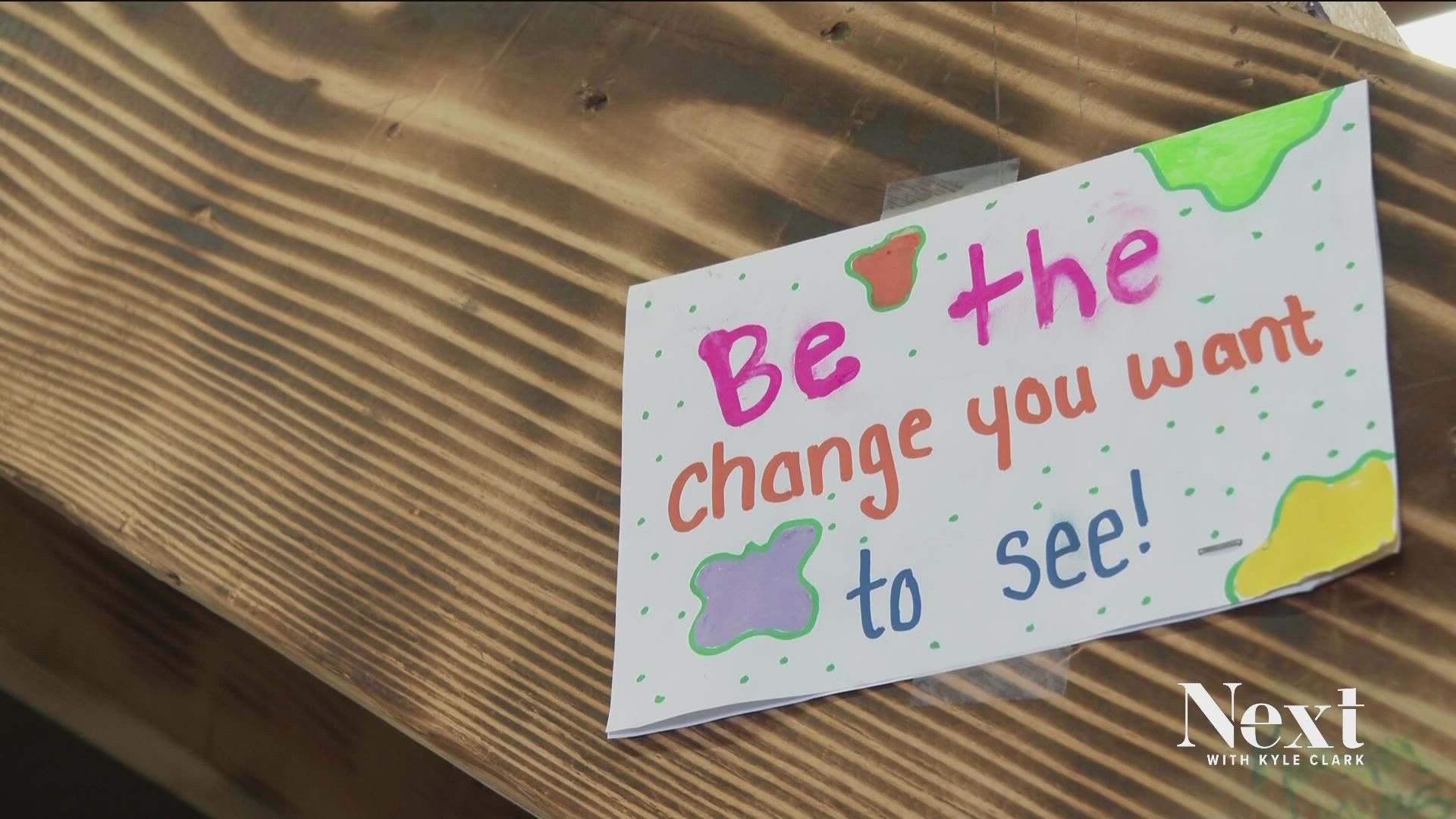DENVER — More, and younger, kids are getting addicted to opiates.
“Most things shrunk in COVID. We doubled," said Ben Stincer, program director of Full Circle. “We’re seeing younger and younger people come in using fentanyl, using heroin. It’s just becoming more normal.”
During the pandemic, the number of youth coming to their support groups doubled.
"It's a phrase that we commonly use here is, 'I don't have a drug problem. I have a me problem,'" said Keegan Pyron, 17.
For Keegan, getting high and self-harm were short-term solutions for a long-term problem.
"Sometimes, especially with substance abuse, is you have a hard time loving yourself," he said. “I lived my life like that, thinking that I’m not going to be enough.”
Keegan smoked marijuana for the first time at age 11. Eventually, he was doing fentanyl and methamphetamines. He started going to Full Circle two years ago.
"It’s not going to work unless I commit to it. I can’t have a plan to leave. I can’t have a plan to keep using," he said. "I have to live here. I have to be here. I have to be in the moment.”
Now, Keegan is 17 years old and more than eight months sober.
"If you take away getting high, you take away self-harm, you take away these things that are making me feel whole, you know how I feel? Empty," Stincer said. “The amount of young people I see come in the program and they have 10-15 days sober and they start freaking out. They don’t know what to do with themselves. They feel happy, sad, mad all at once. Or they’ve stopped watching pornography or stopped being so promiscuous and they don’t know what to do with themselves because their tool for everything has been to go participate in that behavior because it works, it feels better and now they don’t know what to do.”
He said if someone wants to get sober. what they do next has to be a sufficient substitute.
"The goal is to provide them with something that's equally as exciting or as visceral as that lifestyle can be prior to coming into the program," Stincer said. “The solution, if we were to boil it all the way down, is honesty, open-mindedness, willingness to do something different and connection.”
He said Full Circle isn't therapy and it's not treatment.
“We do support group meetings that are fully peer-to-peer, so it’s young people talking to young people, as well as families talking to families," Stincer said. "But I think one of the most important aspects of the program is that it's fun."
For people ages 13-25, they provide a range of activities, sober social events and people who can relate to an addict's struggle.
Stincer got sober when he was 17, just like Keegan.
"I sit down with someone who hasn't lived that and tell them some of the things I've done and they cry. I sit down with [Keegan] and he laughs," he said. "We're not trying to save anybody. I'm not trying to save anybody. I'm trying to teach them how to save themselves."
Keegan now uses the tools he's learned here, honesty and patience, so he can be the best version of himself.
“I don’t search for happiness. I search for the ability to be happy, as well as the ability to be sad or angry or upset or joyful or excited," Keegan said. "I just want to be able to feel all of these things the way I’m supposed to and not hold onto them, whether that’s anger or happiness. If I hold onto either, it’s going to hurt me. But rather, letting myself feel these things and then letting them go as they’re supposed to, and that’s what I look for and that’s what I live for."
There are 97 teens who participate in Full Circle right now, and the group wants to help more. Full Circle is a nonprofit that offers help to families at no cost.
SUGGESTED VIDEOS: Full Episodes of Next with Kyle Clark

